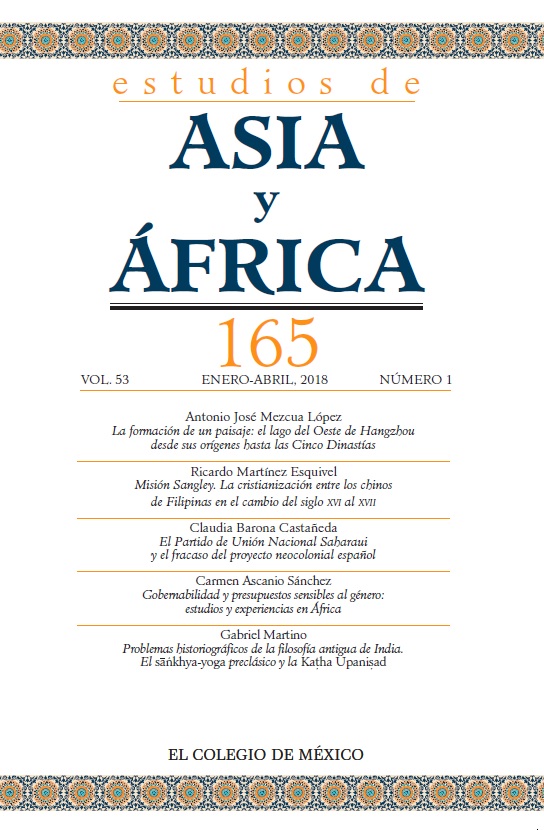Abstract
In recent decades, much research has been conducted on the topic of gender-sensitive budgeting, giving rise to a substantial body of both theoretical and empirical work. This paper analyzes a range of such projects carried out in six different African countries, which are of particular interest given their direct link to priority areas and plans for national development, and the fact that they have been spearheaded by international development agencies and bodies and conducted with the assistance of a range of social partners. We examine the relevance of a gender-based perspective and of the comprehensive and comparative approach it embodies, as well as presenting the results of comparative work in the African context and the main recommendations which come out of it.References
Addabbo, Tindara, Gender Budgeting in the Capability Approach. From Theory to Evidence. WiSE (Women in Scotland’s Economy Series), 2011. [www.gcu.ac.uk/media/gcalwebv2/theuniversity/centresprojects/wise/addabbo.pdf, consultado el 5 de julio de 2016].
Adomako, Akouma y Arnfred, Signe, African Feminist Politics of Knowledge. Tensions, Challenges, Possibilities, Uppsala, Nordiska Afrikan Institutet, 2009.
Adebanyo, Dorothy, Gender Budgeting: Case Study of the Zimbawe Experience, Open Society Iniciative for Southern Africa, s.f. [www.dgf.ug/sites/default/files/dgf_publications/Gender%20Budgeting%20Case%20Study%20of%20the%20Zimbabwe%20Experience.pdf, consultado el 5 de julio de 2016.
Ascanio Sánchez, Carmen, ”Feminismos africanos”, Hernández Corrochano (ed.) Teoría feminista y antropología: claves analíticas, Madrid, Editorial Ramón Areces, 2012, pp. 177-198.
Austen, Siobhan, “Gendered social indicators and grounded theory”, Feminist Economics, 9 (1), 1-18, 2003.
Barker, Gary y Ricardo, Christine, Young men and the construction of masculinity in subsaharan Africa: implications for HIV/AIDS, conflict, and violence, Social Development Papers Conflict Prevention & Reconstruction, nº 26, Washington DC, El Banco Mundial, 2005.
Buchen, Teresa, Gender Budget Iniciatives, Uganda, Mozambique and Nicaragua, Informe VIDC, Development Policy Research, 2007.
Budlender, Debbie y Sharp, Rhonda, con Allen, Kerri (1998). How to do a gender-sensitive budget analysis: Contemporary research and practice, Londres, Commonwealth Secretariat y AusAID,1998.
[www.femtech.at/sites/default/files/How_to_do_a_gendersensitive_budget_analysis.pdf., consultado el 5 de julio del 2016]
Budlender, Debbie, “La economía política de los presupuestos de las mujeres en el sur”. En R. Torrado, R. Rodríguez (eds.), El género en la economía, Chile, Centro de Estudios de la Mujer/ ISIS Internacional. 2000, pp. 39-60.
Budlender, Debbie y Hewitt, Guy, Engendering Budgets. A Practitioners’. Guide to Understanding and Implementing Gender-responsive Budgets, Melbourne, Commonwealth Secretariado, 2003.
Burn, Nalini, Integrating Gender Responsive Budgeting into the Aid Effectiviness Agenda, Morocco Country Report, UNIFEM, 2008.
Cagatay, Nitüfer, Budgets as if people mattered: Democratizing macroeconomic policies, UNDP/SEPED Conference Paper Series, 4, 2000.
Commonwealth Secretariat, Gender budget initiative: A commonwealth initiative to integrate gender into national budgetary processes, Londres, Commonwealth Secretariat,1999.
ECLAC, Tools and indicators for gender impact analysis, monitoring and evaluation, Nueva York, ECLAC (Economic Commission for Latin America and the Caribbean), 2002
[www.un.org/womenwatch/ianwge/annualmeetings/2002/RepToolsndic.PDF. Consultado el 5 de julio del 2016]
Ferber, Marianne y Nelson, Julie, Más allá del Hombre Económico, Madrid, Cátedra,2004.
Gálvez Muñoz, Lina y Torres López, Juan (2009), “La crisis económica y sus alternativas: una perspectiva de género”,Forum de Política Feminista, Feminismo ante la Crisis, Madrid, XIX Taller de Política Feminista, 2009, pp. 33-48.
Greenstein, Theodore, “Economic dependence, gender and the division of labor in the home: A replication and extension”, Journal of Marriage and Family, 62, 2000, pp. 322-335.
Holvgoet, Nathalie y Inberg, Liesbeth, Integrating Gender Responsive Budgeting into the Aid Effectiviness Agenda, Mozambique Country Report, UNIFEM, 2008.
ICIEG, Cabo Verde’s report: Beijing+20 on the implementation of the Beijing declaration and platform for action, Praia, ICIEG (Cape Verdean Institute for Gender Equality and Equity), 2014.
Kytölä, Liisa, Integrating Gender Responsive Budgeting into the Aid Effectiviness Agenda, Tanzania Country Report, UNIFEM, 2008.
Liebling-Kalifani, Helen; Ojiambo-Ochieng, Ruth; Marshall, Angela; Were-Oguttu, Julie y Susini, Seggane, “Violence against Women in Northern Uganda: The Neglected Health Consequences of War”, Journal of International Women´s Studies, 9 (3), 2008, pp. 44-56.
Mama, Amina, Beyond the Masks: Race, Gender and Subjectivity, Londres, Routledge,1995.
Mama, Amina y Okazawa-Rey, Margo, “Militarism, Conflict and Women´s Activism”, Feminist Africa, 10, 2008, pp. 109-147.
Mejiuni, Olutoyin , Women and Power. Education, Religion and Identity. Dakar, CODESRIA (Council for the Development of Social Science Research in Africa), 2013.
Mutamba, John y Mbayiha, Cyma, Integrating Gender Responsive Budgeting into the Aid Effectiviness Agenda. Rwanda Country Report, UNIFEM, 2008.
Muteshi, Jacinta y Tizazu, Tiruwork, Integrating Gender Responsive Budgeting into the Aid Effectiviness Agenda. Ethiopia Country Report, UNIFEM,2008.
Ntakeu, Bruno, Integrating Gender Responsive Budgeting into the Aid Effectiviness Agenda. Cameroon Country Report, UNIFEM, 2008.
Odejide, Adiba,” What can a woman do?” Being women in a Nigerian university”, Feminist Africa, 8, 2007, pp. 42-59.
Sen, Amartya, Elección colectiva y bienestar social, Madrid, Alianza Editorial, 2007.
Tanzarn, Nite, Integrating Gender Responsive Budgeting into the Aid Effectiviness Agenda, Uganda Country Report, UNIFEM, 2008.
UNIFEM, Engendering Budgets: The Southern African Experience, Harare, UNIFEM Regional Workshop, 1998.
UNIFEM, El progreso de las mujeres en el mundo 2000, Nueva York, Fondo de Desarrollo de las Naciones Unidas para la mujer,2000.
UNIFEM, El progreso de las mujeres en el mundo 2008-2009, Nueva York: Fondo de Desarrollo de las Naciones Unidas para la mujer, 2008.
UNIFEM, Gender Responsive Budgeting and Aid Effectiveness: Knowledge briefs. Nueva York, UNIFEM,2009.
UNIFEM, UNIFEM´s Work on Gender-Responsive Budgeting. Evaluation Report, Nueva York, UNIFEM, 2010.
UN Women, Changing Lives in Africa 2012, Nueva York, Naciones Unidas, 2012.
UN women, World survey on the role of women in development, 2014. Gender equality and sustainable development. Nueva York, Naciones Unidas, 2014.
This work is licensed under a Creative Commons Attribution-NonCommercial-NoDerivatives 4.0 International License
Copyright 2022 Estudios de Asia y África


